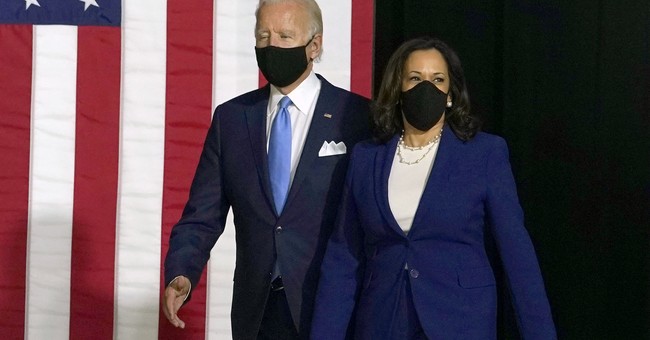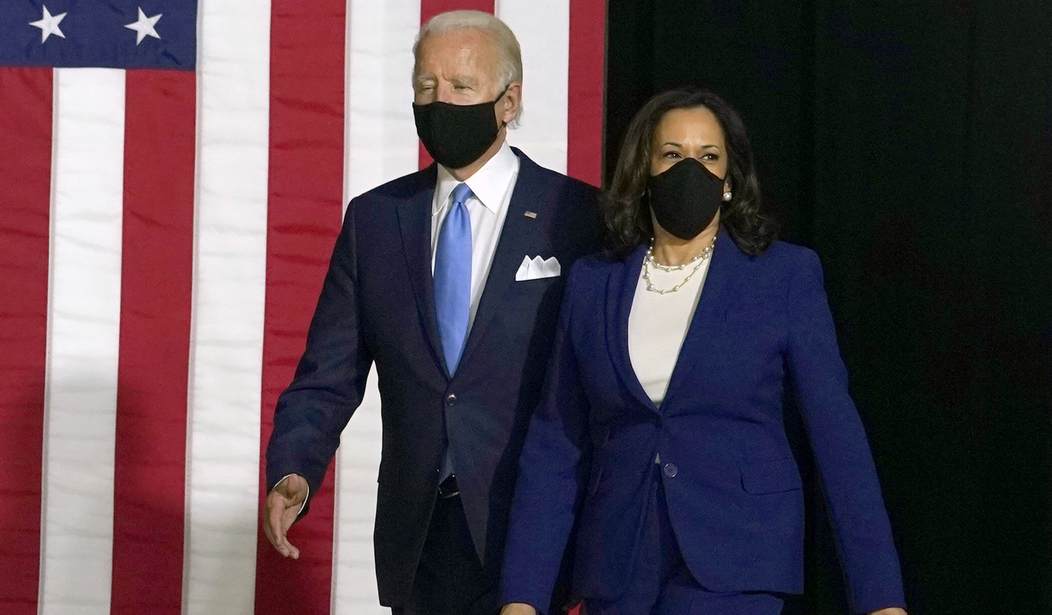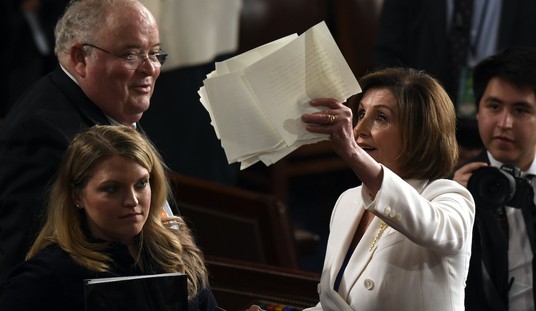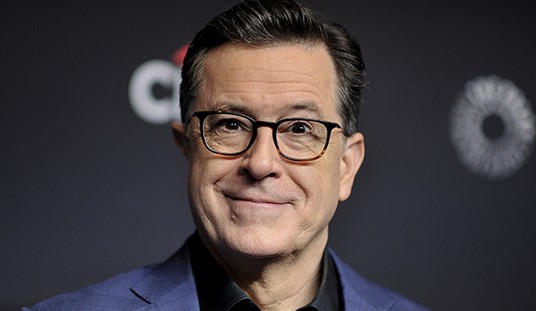
When the lede of many major news organizations’ coverage of her speech merely a reference to the self-evident fact that she is the first “woman of color” to be nominated to run for Vice President, the content of the speech that followed must have been pretty bland.
And Kamala Harris delivered exactly that.
In going through the text of a quite pedestrian speech, one lines stuck out:
In this election, we have a chance to change the course of history.
Joe Biden was Vice-President for eight of the past twelve years. If “changing the course of history” was so vital, why didn’t they do it then?
And there were two odd references to events of the past that seem to me to have all the trappings of historical revisionism:
I knew Joe as Vice President. I knew Joe on the campaign trail. But I first got to know Joe as the father of my friend.
Joe’s son, Beau, and I served as Attorneys General of our states, Delaware and California. During the Great Recession, we spoke on the phone nearly every day, working together to win back billions of dollars for homeowners from the big banks that foreclosed on people’s homes.
This claim might very well be true. At the same time, this claim might very well be fact-checked, and if it is an embellishment or not true at all, it could stick around a while.
It would not take much of an enterprising reporter’s time to seek out the telephone records of either the California Attorney General or the Deleware Attorney General in a public records request to confirm whether or not Harris and Beau Biden spoke with each other on the phone “nearly every day.” Their time as respective Attorneys General in California and Deleware did substantially overlap. But one oddity of the claim is that Deleware is considered one of the most corporate “friendly” states in the United States, while California … well, isn’t.
Deleware’s Corporations Code was designed to attract companies to incorporate in the state and has provisions intended to help big companies — especially banks and credit card lenders — defend against class-based consumer/debtor litigation of the type that Harris mentioned in her speech.
The idea that she was talking to Beau Biden almost every day about a shared interest in pursuing big banks foreclosing people out of their homes during the collapse in the housing market is laughable. Beau Biden’s Deleware was where those banks went seeking shelter from the efforts of states like California. And the “timing” of her alleged “near-daily” calls is also highly questionable. Harris was elected as Attorney General of California in November 2010. Beau Biden had been elected Attorney General of Deleware in November 2008.
The mortgage loan foreclosure crisis that arose from massive borrower defaults on sub-prime and interest-only loans, turned into mortgage-backed securities sold by Wall Street firms, began in 2007, and was fully underway in the second quarter of 2008. The collapse of major Wall Street firms like Bear Sterns and Lehman Brothers happened in the late summer of 2008. It was another 30 months before Kamala Harris was elected Attorney General of California. Any effort to dig into the historical record behind her claimed political kinship with Beau Biden is likely to reveal this to be a “Kama-lie.”
And — where was Hunter?
The second historical oddity that seemed noteworthy to me from the text of the speech was the reference to her mother and the fact that after her parents divorced when she was five, her and her sister were raised by her mother as a working single parent.
There’s another woman, whose name isn’t known, whose story isn’t shared. Another woman whose shoulders I stand on. And that’s my mother—Shyamala Gopalan Harris.
She came here from India at age 19 to pursue her dream of curing cancer. At the University of California Berkeley, she met my father, Donald Harris—who had come from Jamaica to study economics.
…..
When I was 5, my parents split and my mother raised us mostly on her own. Like so many mothers, she worked around the clock to make it work—packing lunches before we woke up— and paying bills after we went to bed. Helping us with homework at the kitchen table—and shuttling us to church for choir practice.
She made it look easy, though I know it never was.
My mother instilled in my sister, Maya, and me the values that would chart the course of our lives.
She raised us to be proud, strong Black women. And she raised us to know and be proud of our Indian heritage.
Harris’ mother came to the United States in 1957 at 19 years of age. Harris was born when her mother was 26, and her parents were divorced when Harris’ mother was 31. It rings hollow to me that her mother, who has no family or historical connection to “Africa” or “African-American” cultural norms in the United States would raise Kamala and her sister — as a single parent — to be “proud, strong Black women.”
“Race” is the third-rail of politics in the era of BLM, and the GOP is well-warned to not go near the subject. But the reality is that Kamala Harris lived her political life in California as a racial chameleon, It will be interesting to see if the Trump campaign is willing to go back and time and dig into how Harris packaged herself as a candidate for electoral office in California, and just how much she wanted to draw attention to herself under the label of being a “proud, strong Black woman.”
The final thing that was noteworthy about the text of her speech in consideration of the content as a whole is the relative lack of emphasis on the cornucopia of radical left-wing grievances and demands. The text seems to want to walk a tight-rope between having Harris — packaged as a “moderate” with “law & order” bona fides meant to attract suburban and college-educated voters — float above the violence in the streets and looney demands to defund the police and have the government provide everything to everyone for free, while at the same time acknowledging that she was long-ago rejected in overwhelming numbers by the radical left-wing of the party as a suitable candidate for President. Yet here she is, and she promises to do better now.
If any form of her convention speech begins to be transformed into a stump speech, her usefulness as a surrogate for dementia-riddled Biden will be strangled in the crib. I’m not sure there is a good stump speech for Harris to give, other than a 20-minute diatribe aimed at Pres. Trump.
For the 2020 Democrat party, she can’t be “all things to all people” because she starts from a position of being “nothing to no one” who is listening. She proved that Wednesday night — or proved it again given that the first time was when she dropped out of the primary contest before a single vote was cast.














Join the conversation as a VIP Member